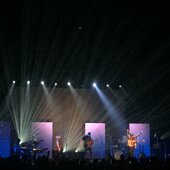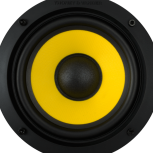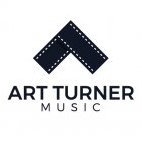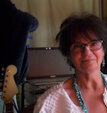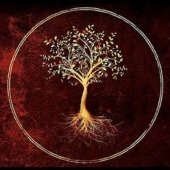Leaderboard
Popular Content
Showing content with the highest reputation on 09/16/2021 in all areas
-
https://store.solidstatelogic.com/products/ssl-native-x-eq-2 85% off8 points
-
Browsing their site today I noticed updates since these were last on sale. AFAIK SSL does not send out notices about software updates. So here are the most recent versions available from https://www.solidstatelogic.com/products/uc1?tab=DownloadsandDocuments SSL 360 v1.2.15.48615 Channel Strip 2 v1.0.55 Buss Compressor 2 v1.0.558 points
-
Halftime! With 15 days gone and 15 more on deck, the group buy has so far added 4,899 September signups. The count is currently 15,436, so if another 4,899 sign up through the 30th (at the current average rate of 13.6/hour), the final count would be 20,335. That average rate was goosed significantly this morning-through-evening by a ~10 hour surge of signups, to the tune of 766 total today, best of any day of the group buy not named August 30th. If you ignore the "goose" and use the going rate when today started (12.3/hour) to project, the total would be 19,864, or 20k with a slight nudge. If you're thinking "DAW half empty", the lowest rate for a full day in September (the 8th) was 7/hour -- at that rate through the 30th, the final count would be 17,956, call it 18k. If you're more optimistic, you may note that while this latest signup surge was the largest, it's also the 4th in the first 15 days, as shown by the bumps in the average signups/hour line here: The current rush seems to have died down for now (around 13.5/hour since 8pm, after 60/hour for half the day), but there may be more on the way. Looks like some more low-guessers may be knocked off the list before things are done.8 points
-
Dear AmpliTube 5 user, AmpliTube 5 has been updated to version 5.1.1 for Mac/PC. This new version optimizes various functions and features as well as includes different fixes for issues some users might have experienced. We recommend all AmpliTube 5 users update for the best experience. Best regards, Your IK Multimedia team Instructions To get updated on Mac/PC, launch the IK Product Manager, go to Manage My Products, and use the Update button next to AmpliTube 5. Changes from version 5.1: Improvements • Fixed Pitch Shifter rack version split mode that had a wrong behavior. Now it splits the dry and pitched signals between left and right channels. • Receive channel in MIDI dialog in the preferences window now supports a None option to ignore any incoming MIDI signal from any channel. • Fixed Brit Silver wrong push-pull behavior. • Updated all Brian May presets containing the Chorus CE-1 pedal that had a wrong behavior causing the presets to be too processed. • Fixed X-TIME’s Arctic model that had no delayed signal when BPM mode was active. • Fixed a possible crash while drag & dropping pedals. • General reliability improvements.5 points
-
5 points
-
Anyone who thinks they couldn't possibly need a bluegrass fiddle, watch this. It's not my genre, but gosh-dangit, I think I could do something with this.4 points
-
The only CPU heavy-ish of the lot is the SSL reverb; the others just nibble at the edge of your CPU, barely making a dent. be sure to download the 360 software if you want to run SSL channel strip across your tracks and view all of them like an SSL board!3 points
-
I beta-tested this. I got distracted and wrote this little melody. It's just The Fiddle, Indiginus's The STEEL, Picked Acoustic, and Trilian. The Fiddle - Three Things.mp33 points
-
That SSL Channel and Bus bundle was one of the best deals ever at $49.3 points
-
But the Wizard was not a Wizard. It is all in our hands. So go ahead and click that buy button3 points
-
I first made this request back on the old forum, 3 1/2 years ago, and it still pesters me every Cakewalk session. I doubt I was the first ever to request it. As we have the Replace Synth command for virtual instruments, so we should have a Replace command for FX. Pretty much simple as that. Each time you use it, it would replace 3 clicks (delete effect, effect rack, select Insert Audio Effect) with 1 (replace effect). If you're anything like me, replacing effect plug-ins is something you do a lot in every mixing session, especially if you're making electronic music or sound design, where the line between effect and instrument is blurry. I'm sure it's already been endlessly requested, but the way it gets done is to keep it at the top of the stack, so if you'd like to see this, please reply here.2 points
-
TC does it again. $59 intro. Requires full Kontakt https://www.indiginus.com/the-fiddle Amazing is right. https://www.youtube.com/watch?v=jcoFqMvOub42 points
-
INTRO OFFER: $39.99 The ultimate recreation of the high end multi-channel Suhr tube amp with 3 distinct modes and an incredible wide array of tones. With the purchase of the Suhr PT100 for only $39.99, you get another very special offer: Until October 16, you can get ANY (!) of our amp plugins for just $29.99. https://www.plugin-alliance.com/en/products/suhr_pt100.html CHECK IT OUT! Bundle Subscription MEGA and MUSICIAN Bundle users simply download the plugin and activate it at no extra cost. Done. Plans starting at just $10/mo* Perpetual License Yes, you can purchase a single, perpetual license for this plugin. List Price $149, Intro Offer Price $79.99 Your Intro Price: $39.99* with voucher code PT100-3999 Use this code during checkout. Offer available until October 16. Feel free to share the code with your friends. ANY (!) Amp $29.99 Save BIG with our PA partner offer! With the purchase of the Suhr PT100 for only $39.99, you get another very special (license) offer: Until October 16, you can get ANY (!) of our amp plugins for just $29.99 Special License Offer: ANY(!) Amp $29.99*2 points
-
Welcome Address to freshman parents at Boston Conservatory, given by Karl Paulnack, pianist and director of music division at Ithaca College. “One of my parents' deepest fears, I suspect, is that society would not properly value me as a musician, that I wouldn't be appreciated. I had very good grades in high school, I was good in science and math, and they imagined that as a doctor or a research chemist or an engineer, I might be more appreciated than I would be as a musician. I still remember my mother's remark when I announced my decision to apply to music school-she said, "you're WASTING your SAT scores." On some level, I think, my parents were not sure themselves what the value of music was, what its purpose was. And they LOVED music, they listened to classical music all the time. They just weren't really clear about its function. So let me talk about that a little bit, because we live in a society that puts music in the "arts and entertainment" section of the newspaper, and serious music, the kind your kids are about to engage in, has absolutely nothing whatsoever to do with entertainment, in fact it's the opposite of entertainment. Let me talk a little bit about music, and how it works. The first people to understand how music really works were the ancient Greeks. And this is going to fascinate you; the Greeks said that music and astronomy were two sides of the same coin. Astronomy was seen as the study of relationships between observable, permanent, external objects, and music was seen as the study of relationships between invisible, internal, hidden objects. Music has a way of finding the big, invisible moving pieces inside our hearts and souls and helping us figure out the position of things inside us. Let me give you some examples of how this works. One of the most profound musical compositions of all time is the Quartet for the End of Time written by French composer Olivier Messiaen in 1940. Messiaen was 31 years old when France entered the war against ***** Germany. He was captured by the Germans in June of 1940, sent across Germany in a cattle car and imprisoned in a concentration camp. He was fortunate to find a sympathetic prison guard who gave him paper and a place to compose. There were three other musicians in the camp, a cellist, a violinist, and a clarinetist, and Messiaen wrote his quartet with these specific players in mind. It was performed in January 1941 for four thousand prisoners and guards in the prison camp. Today it is one of the most famous masterworks in the repertoire. Given what we have since learned about life in the concentration camps, why would anyone in his right mind waste time and energy writing or playing music? There was barely enough energy on a good day to find food and water, to avoid a beating, to stay warm, to escape torture - why would anyone bother with music? And yet - from the camps, we have poetry, we have music, we have visual art; it wasn't just this one fanatic Messiaen; many, many people created art. Why? Well, in a place where people are only focused on survival, on the bare necessities, the obvious conclusion is that art must be, somehow, essential for life. The camps were without money, without hope, without commerce, without recreation, without basic respect, but they were not without art. Art is part of survival; art is part of the human spirit, an unquenchable expression of who we are. Art is one of the ways in which we say, "I am alive, and my life has meaning." On September 12, 2001 I was a resident of Manhattan. That morning I reached a new understanding of my art and its relationship to the world. I sat down at the piano that morning at 10 AM to practice as was my daily routine; I did it by force of habit, without thinking about it. I lifted the cover on the keyboard, and opened my music, and put my hands on the keys and took my hands off the keys. And I sat there and thought, does this even matter? Isn't this completely irrelevant? Playing the piano right now, given what happened in this city yesterday, seems silly, absurd, irreverent, pointless. Why am I here? What place has a musician in this moment in time? Who needs a piano player right now? I was completely lost. And then I, along with the rest of New York, went through the journey of getting through that week. I did not play the piano that day, and in fact I contemplated briefly whether I would ever want to play the piano again. And then I observed how we got through the day. At least in my neighborhood, we didn't shoot hoops or play Scrabble. We didn't play cards to pass the time, we didn't watch TV, we didn't shop, we most certainly did not go to the mall. The first organized activity that I saw in New York, that same day, was singing. People sang. People sang around fire houses, people sang "We Shall Overcome". Lots of people sang America the Beautiful. The first organized public event that I remember was the Brahms Requiem, later that week, at Lincoln Center, with the New York Philharmonic. The first organized public expression of grief, our first communal response to that historic event, was a concert. That was the beginning of a sense that life might go on. The US Military secured the airspace, but recovery was led by the arts, and by music in particular, that very night. From these two experiences, I have come to understand that music is not part of "arts and entertainment" as the newspaper section would have us believe. It's not a luxury, a lavish thing that we fund from leftovers of our budgets, not a plaything or an amusement or a pass time. Music is a basic need of human survival. Music is one of the ways we make sense of our lives, one of the ways in which we express feelings when we have no words, a way for us to understand things with our hearts when we can't with our minds. Some of you may know Samuel Barber's heart wrenchingly beautiful piece Adagio for Strings. If you don't know it by that name, then some of you may know it as the background music which accompanied the Oliver Stone movie Platoon, a film about the Vietnam War. If you know that piece of music either way, you know it has the ability to crack your heart open like a walnut; it can make you cry over sadness you didn't know you had. Music can slip beneath our conscious reality to get at what's really going on inside us the way a good therapist does. I bet that you have never been to a wedding where there was absolutely no music. There might have been only a little music, there might have been some really bad music, but I bet you there was some music. And something very predictable happens at weddings - people get all pent up with all kinds of emotions, and then there's some musical moment where the action of the wedding stops and someone sings or plays the flute or something. And even if the music is lame, even if the quality isn't good, predictably 30 or 40 percent of the people who are going to cry at a wedding, cry a couple of moments after the music starts. Why? The Greeks. Music allows us to move around those big invisible pieces of ourselves and rearrange our insides so that we can express what we feel even when we can't talk about it. Can you imagine watching Indiana Jones or Superman or Star Wars with the dialogue but no music? What is it about the music swelling up at just the right moment in ET so that all the softies in the audience start crying at exactly the same moment? I guarantee you if you showed the movie with the music stripped out, it wouldn't happen that way. The Greeks: Music is the understanding of the relationship between invisible internal objects. I'll give you one more example, the story of the most important concert of my life. I must tell you I have played a little less than a thousand concerts in my life so far. I have played in places that I thought were important. I like playing in Carnegie Hall; I enjoyed playing in Paris; it made me very happy to please the critics in St. Petersburg. I have played for people I thought were important; music critics of major newspapers, foreign heads of state. The most important concert of my entire life took place in a nursing home in Fargo, ND, about 4 years ago. I was playing with a very dear friend of mine who is a violinist. We began, as we often do, with Aaron Copland's Sonata, which was written during World War II and dedicated to a young friend of Copland's, a young pilot who was shot down during the war. Now we often talk to our audiences about the pieces we are going to play rather than providing them with written program notes. But in this case, because we began the concert with this piece, we decided to talk about the piece later in the program and to just come out and play the music without explanation. Midway through the piece, an elderly man seated in a wheelchair near the front of the concert hall began to weep. This man, whom I later met, was clearly a soldier-even in his 70's, it was clear from his buzz-cut hair, square jaw and general demeanor that he had spent a good deal of his life in the military. I thought it a little bit odd that someone would be moved to tears by that particular movement of that particular piece, but it wasn't the first time I've heard crying in a concert and we went on with the concert and finished the piece. When we came out to play the next piece on the program, we decided to talk about both the first and second pieces, and we described the circumstances in which the Copland was written and mentioned its dedication to a downed pilot. The man in the front of the audience became so disturbed that he had to leave the auditorium. I honestly figured that we would not see him again, but he did come backstage afterwards, tears and all, to explain himself. What he told us was this: "During World War II, I was a pilot, and I was in an aerial combat situation where one of my team's planes was hit. I watched my friend bail out, and watched his parachute open, but the Japanese planes which had engaged us returned and machine gunned across the parachute chords so as to separate the parachute from the pilot, and I watched my friend drop away into the ocean, realizing that he was lost. I have not thought about this for many years, but during that first piece of music you played, this memory returned to me so vividly that it was as though I was reliving it. I didn't understand why this was happening, why now, but then when you came out to explain that this piece of music was written to commemorate a lost pilot, it was a little more than I could handle. How does the music do that? How did it find those feelings and those memories in me?" Remember the Greeks: music is the study of invisible relationships between internal objects. This concert in Fargo was the most important work I have ever done. For me to play for this old soldier and help him connect, somehow, with Aaron Copland, and to connect their memories of their lost friends, to help him remember and mourn his friend, this is my work. This is why music matters. What follows is part of the talk I will give to this year's freshman class when I welcome them a few days from now. The responsibility I will charge your sons and daughters with is this: "If we were a medical school, and you were here as a med student practicing appendectomies, you'd take your work very seriously because you would imagine that some night at two AM someone is going to waltz into your emergency room and you're going to have to save their life. Well, my friends, someday at 8 PM someone is going to walk into your concert hall and bring you a mind that is confused, a heart that is overwhelmed, a soul that is weary. Whether they go out whole again will depend partly on how well you do your craft. You're not here to become an entertainer, and you don't have to sell yourself. The truth is you don't have anything to sell; being a musician isn't about dispensing a product, like selling used Chevys. I'm not an entertainer; I'm a lot closer to a paramedic, a firefighter, or a rescue worker. You're here to become a sort of therapist for the human soul, a spiritual version of a chiropractor, physical therapist, someone who works with our insides to see if they get things to line up, to see if we can come into harmony with ourselves and be healthy and happy and well. Frankly, ladies and gentlemen, I expect you not only to master music; I expect you to save the planet. If there is a future wave of wellness on this planet, of harmony, of peace, of an end to war, of mutual understanding, of equality, of fairness, I don't expect it will come from a government, a military force or a corporation. I no longer even expect it to come from the religions of the world, which together seem to have brought us as much war as they have peace. If there is a future of peace for humankind, if there is to be an understanding of how these invisible, internal things should fit together, I expect it will come from the artists, because that's what we do. As in the concentration camp and the evening of 9/11, the artists are the ones who might be able to help us with our internal, invisible lives."2 points
-
Nice tune, Reid. Very nice indeed. I love The STEEL, it's one of my favorites. abacab, if you like that one, check out Delta Blues. It's a tossup as to which one I like better. The latter is especially nice through an amp sim. I've tried to talk Tracy into doing a fretless bass, or any bass with slides. He was resistant, saying the market is already saturated with basses. But imagine a nice-sounding bass that could do glissandos like these can...mmm.2 points
-
Yes, but you need to be the first to post to be the editor in chief, LOL! I only managed to do that because Larry is away!!! ?2 points
-
Shouldn't this be titled Another Amplitube 5 Update ? t2 points
-
2 points
-
Yeah, FabFilter beats them all. But I do like the SSL Channel and Bus bundle.2 points
-
Isn't 20k @Peter - IK Multimedia guess?? Interesting! I can see him now downloading this chart and planning his next email blast. Really interesting stuff, thanks for doing this!2 points
-
2 points
-
This is the deal. Just trialed this and if it weren’t for just picking up the Fabfilter FX bundle I’d be all over this. Probably will anyway. It’s the most feature-packed EQ I’ve run across and a pleasure to fine-tune individual bands. Like other SSL plugs at these sale prices, it’s a no brainer.2 points
-
2 points
-
No sir. This is with the actual developers. I have been in direct contact with them and have signed agreements with the BandLab company. Thanks for the heads up though. It’s sad that this type of thing is happening. Just when myself and others start changing minds about Cakewalk.2 points
-
If I bought 100 custom shop credits would I get that amount times the promo number. (Like 1500) or is it only 1 fx get 15?2 points
-
I'm afraid this IS the update. You can always use the faster/easier method of inserting plugins using the Browser as I tried to explain previously - see thread below You can have the browser docked either side or floating so when you hit B it pops up ( i..e mid screen ) and you can quickly browse-search-drag-drop The old right click insert method goes way back to when most of us only had few plugins and is a bit unwieldy now people have hundreds and the Browser is a more elegant solution.2 points
-
Well, I resisted as long as I could. Trying to work out if it's worth getting duplicates of some licenses. I'm guessing I could all but offset the cost of entry by selling off some old ones at bargain basement prices.2 points
-
Thanks. I'll try the upgrade again. EDIT: No idea what happened the first time, but installing the latest version of v5 worked great. AL4 is still the full version, as is AL5. May have been an authentication problem the first time. Doesn't matter. I have a lot of banks I purchased for AL4 that show up. I have a total over 9200 presets available, so I think I've got everything. Thanks again for the nudge.2 points
-
2 points
-
I received mine yesterday, even if Mike/mibby and I ordered the same day. Pure luck on my part, I recon. Fingers crossed that you, Mike and the rest get yours soon. All the best.2 points
-
Not an effect as such, but I wanted to mention a very useful audio utility that I use on every project: Mediahuman Audio Converter. It very quickly converts just about any audio format to any other audio format, with lots of customization of settings available for bit depth, rate and other parameters. When I do an audio export from Cakewalk or any other DAW, I do one export in one lossless format and use Mediahuman to generate any other formats that I need. Since many of the effects and instruments I use include randomization elements, if I went back to the project and did an export for WAV, then FLAC, then MP3, then AAC or whatever, chances are high that each of those exports would be different, in varying degrees of perceptibility depending on what plug-ins I used. Check it out, it's really invaluable for my workflow. Also very handy to have when preparing files for distribution is Mp3tag, which I use to edit metatags in audio files. Right after I do that export (which I do as FLAC), I open Mp3tag and add Artist, Title, Year, Genre, etc. to the file. This way, when I do my conversions with Mediahuman, the tags will already be in place and Mediahuman will add them to any files it creates from that master. One more very handy free utility for analyzing media files of any kind, audio or video, is MediaInfo, which they describe as "convenient unified display of the most relevant technical and tag data for video and audio files." I install both MP3tag and MediaInfo as an Explorer extensions so that I can right click on a media file name and run them. MediaInfo can tell you what bit rate and sampling rate the file uses, also which CODEC(s) and displays tags. I really wouldn't want to be without any of the three.2 points
-
I am intimately familiar with the model you're referring to...19 heads, 20 platters, 300 MB capacity, similar in size and form factor to a top-loading washing machine. Those things used to go for $60,000. Weighed about 200 lbs. Were never popular with laptops.1 point
-
Some people bought in at 2, like me. Flash sale is under the "Buy" tab.1 point
-
1 point
-
1 point
-
See, we knew you had something to do with this bump! ? Edit: Oh, and great job btw! Thanks!1 point
-
It already seemed like a small upgrade (several things that should have been fixed long ago) based on the $129 upgrade price, but at $199, I think it will be a hard sell.1 point
-
The "assistance" is likely us sending an incredible number of emails and the next couple of days get a bit of a bump... Occam's Razor and such.1 point
-
1 point
-
Rapid Composer is a breed apart. Much more complex, but more versatile as far phrasing, meter, and "styles". IMHO much more useful for orchestral than the others, for example. Certainly it can do straight forward "song writing" stuff too, but the other two get you there more easily. Orb Producer 3 and Captain Plugins are pretty similar. They are geared more for building more "typical" modern songs with verse, chorus, bridge sections, etc. I know when I bought Captain suite, I got a bundle which included the drums module, and it is very good. You can drop in samples and do simple editing, and/or send or drop MIDI. I find the MIDI editing in it quite useful too. (no drum module in Orb). I give Orb the edge in chords and overall song structure. It is easier to do measure splits, odd length phrases, and general phrase construction and editing (and odd meters). Bass generation is pretty similar. Melody generation is just blah on both of them. You might get an idea that you can run with though. Aside- Rapid Composer can come up with some terrific "motifs", but any toe-tappers need human intervention as well. Don't forget to consider Scaler2 from Plugin Boutique. IMHO give the most BANG for the least $ of any of the above. You can drop multiple instances on tracks and they will talk to each other, allowing you to have one make Chords, other tracks generate bass lines, arps, stabs, etc based on the "mother" chord instance. No percussion here, and no melody generator, but you CAN make it lock your MIDI keyboard to chord notes, scale notes, etc, so you can entice your cat to walk back and forth on your keyboard and get about as useful melodies as the others generate.1 point
-
Hi Inthorns, thank you for listening and your feedback, I appreciate it ! Interesting comment about the space and the driftyness, not something I had thought about but will now. Comments like yours are so inspiring, pointing out something that I didn't realize or think about consciously. Cool. I'm glad to know you enjoyed the feeling and think its good !1 point
-
Ok, I take a day with my friend the keyboard player from my band to try out some of my newly acquired IK keyboard stuff, and when I come back to the web: BANG another freebie and the participant counter seems to have hit an upward tornado! Serves me well trying my stuff before the end of the GB! I missed all of todays excitement! ?1 point
-
The only thing I am really missing that the GB won't fill is the extra gear you get with AmpliTube 5 Max. I completed my T-Racks 5 to Max level without buying Max, and I don't really care about SampleTank Max. I know this has been said before, but I wish they would make the extra AmpliTube 5 Max gear available in this group buy.1 point
-
And before large-capacity disk drives were a thing, bulk storage was on tape, which was loaded onto a tape drive. Only the very earliest of those had capstans and rollers; they were driven by synchronized DC motors connected directly to the spindles, with vacuum columns to take up the slack during fast stops and starts. For all their complexity, when they broke it was always the same part that failed: just like your solid-state guitar amp, it was the heatsink-mounted bank of 2N3055s that made up the power amp for the motors. And those drives were dangerous: if you forgot to extend the stabilization arms on the rack when you pulled out a tape drive for maintenance the whole rack could come down on you. Don't ask me how I know that.1 point
-
As of today, September 15, 2021, I'm in the process of creating a mix for the stuff I've added to the original Boss RC-5 .wav file which was imported quite easily into a CbB project. Managed to add some synth's (the Minilab mkII and CbB I-Strings) and percussion (CbB I-drums), re-did the EQ for the original file and pondering another guitar overdub of some kind (acoustic and/or some treated electric). I can't list all the things I managed to learn in the past few weeks....quite a bit....but one thing I never anticipated is how important the final mix is. Achieving a really delicate and pleasing to the ear balance of all the tracks. Also, the realization of how each instrument has its own set position in the audio spectrum....which limits what other instruments in that audio position can be added. ........cheers!!!!1 point
-
1 point
-
Comes from 'driving' tape across the magnetic head in a tape-based storage system using a capstan and pinch roller.1 point
-
As a Blue3 organ user I can only say that it's awesome! Whether you're looking for an ultimate experience of a real hammond organ in a virtual world or just wanting something nicely growling at the back of your production, y'all get it all in one plugin, and then even more. It's got some innovative ways of controlling from your live MIDI set (like the Roland type lever-bender for slow/fast rotary switching) and the infamous Custom leslie cabinet, that I don't believe you'll be able to recreate it's sound in any other vsti! Plus on my old laptop I can throw in easily 30 instances in a project before the first dropout occurs, then I could relax a bit the tight, live-oriented buffer settings and load another 10 instances, then I had to stop the live video streaming on my second monitor and load another 10 instances etc . The only thing Blue3 is seriously lacking, in my opinion, are some quality pro-level videos, maybe good endorsement videos idk - something that could show off how good it sounds - unless I'm missing something but I don't remember seeing anything of that, a few casual youtube vids only. There are some other nice sounding organs now, the IK approach from above and of course the trustworthy VB3II (VB3 the first version is *NOT* a contender for me, though I understand it works for many... but don't know how ?) but I didn't play any of them myself yet so can't comment much on them except that I like their sound for the most part, maybe except that I'm not always a fan of VB3II leslie sound, based on the demo videos in some situations it's not "there" yet in terms of realm, oh it's great for jazz that's for sure. IKM has done a good leslie too, I think it's at the Blue3 level, both sound great and I can only hear different qualities from them.1 point
-
1 point
-
Originally my "go to" Hammond was Native instruments B4. and then the B4II. But for some reason NI stopped making that plugin and replaced it with Vintage Organs, which doesn't sound nearly as good as B4. Then the GSi VB3 was my go to Hammond for a long time. Unfortunately something went wrong with VB3 v2. It doesn't sound as good as the original. I have several others, but for me my current go-to Hammond is GG Audio's Blue3. IMHO, it is the best sounding Hammond emulator. I also tried the brand new IK Multimedia Hammond B-3X. A lot of people really like it. But after doing extensive A/B comparisons with the Blue3, I find that the Blue3 has a superior sounding Leslie speaker sound, including a better sounding tube overdrive. Blue3 is about a $100 cheaper than the new B-3X, and it uses much less system resources than the B-3X, which I'm reading is a common complaint among users. Go for GG Audio's Blue3. For $100, you can't go wrong!1 point


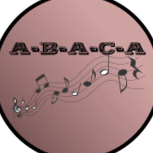



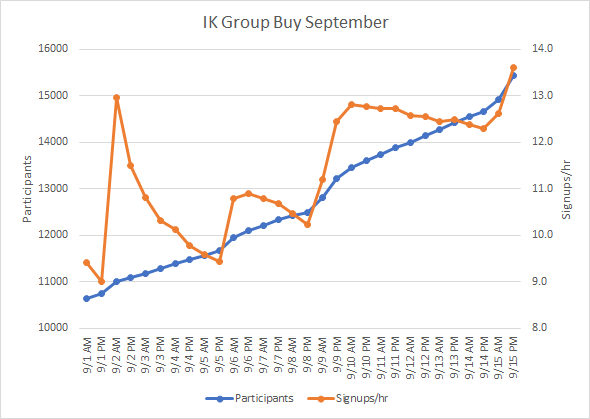
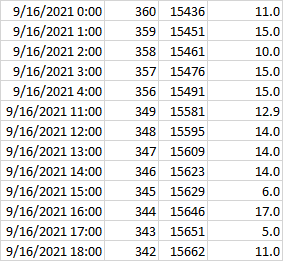






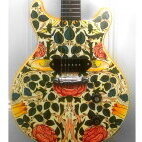
.thumb.png.cdc79b2d9ae925373019871bec794f76.png)
